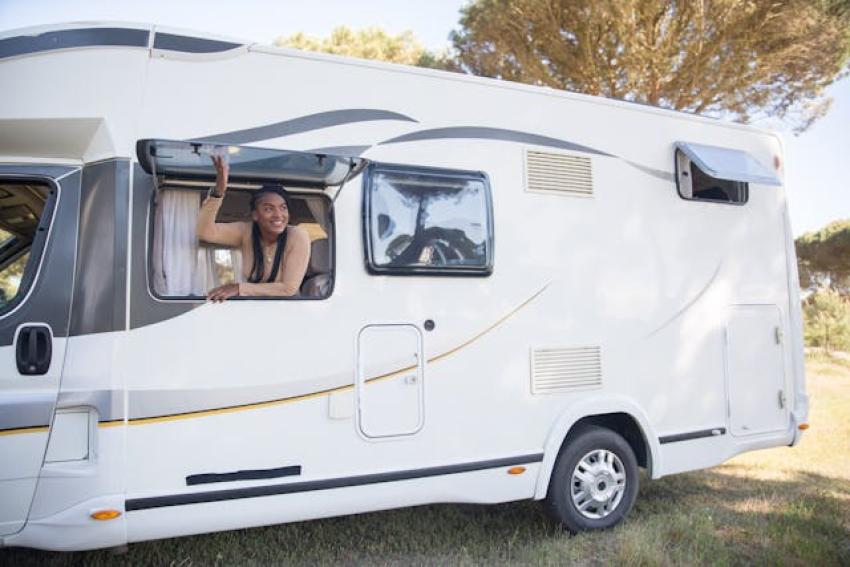
The dream of a camper trailer is pure freedom. It promises spontaneous road trips, family memories under a canopy of stars, and the ability to explore wherever you please. But before you hitch up and hit the road, you face a major decision. Buying a camper is a significant investment, and the options can feel overwhelming. You must consider more than just a shiny exterior or a low price. Making the right choice requires careful planning.
This guide provides a comprehensive checklist to simplify your search. We'll break into parts the buying process, helping you ask the right questions and avoid common mistakes. With this information, you will find a trailer that perfectly fits your lifestyle and budget, setting you up for countless adventures.
Part 1: Foundational Factors - The Non-Negotiables
Before you even step on a lot, you must decide on two non-negotiable factors.
Towing Capacity: This is the most crucial consideration. You must know your tow vehicle's towing capacity and Gross Combined Weight Rating (GCWR). You can find this in your vehicle’s owner’s manual. A trailer's Gross Vehicle Weight Rating (GVWR) must fall well within your vehicle's capacity. Exceeding this limit is not only illegal but also incredibly dangerous.
Budget: Go beyond the sticker price. Calculate the total cost of ownership. This includes the trailer itself, but also insurance, registration fees, maintenance costs, and a buffer for unexpected repairs. You can find many great [trailers for sale] for a wide range of budgets; just make sure you can afford the long-term costs.
Part 2: Your Perfect Floor Plan and Size
Once you understand your foundational limits, you can focus on the fun part: finding a trailer that feels like home.
Size and Weight: A larger trailer provides more space but can be difficult to tow and maneuver. Consider the length and dry weight. Can you confidently navigate a tight campground or a narrow mountain road? Where will you store it when not in use?
Floor Plan and Layout: A trailer’s interior layout defines your experience.
Sleeping Arrangements: How many people will sleep in the trailer? Do you need a separate bunkhouse for kids or a queen bed for a couple?
Kitchen & Bathroom: How often will you cook indoors? Do you need a full kitchen with an oven and microwave, or will a simple cooktop suffice? Is an onboard bathroom with a shower a necessity?
Storage: Check the cabinet and exterior storage space. You can never have too much space for gear.
Part 3: Understanding Trailer Construction
A trailer's build quality dictates its durability and longevity. You will encounter two common construction methods.
"Stick-and-Tin" (Wood Frame with Aluminum Siding): This is a traditional and more affordable method. Trailers are built with a wood frame and have corrugated aluminum siding. They are lighter and cheaper to produce. However, they are more susceptible to water damage, and the siding can get dinged easily. If a leak occurs, the wood frame can rot, leading to costly repairs.
Laminated/Composite (Aluminum or Steel Frame with Composite Panels): This method uses a stronger, lighter aluminum or steel frame and bonds it with composite panels for the walls. The result is a more rigid, durable structure. Laminated walls provide better insulation and are less prone to delamination. However, they are more expensive to build and can be more difficult to repair.
Part 4: Your "Questions to Ask Your Dealer" Checklist
You have done your homework. Now it's time to find a dealer you can trust. A reputable dealer welcomes an informed buyer. This checklist gives you the confidence to ask the right questions, ensuring you get clear, comprehensive answers.
What is the Gross Vehicle Weight Rating (GVWR)?
How is the trailer constructed? Is it laminated or stick-and-tin?
What is covered under the manufacturer's warranty, and for how long?
Do you have an on-site service department?
What does routine maintenance look like for this model?
Can you provide a walkthrough of the electrical and plumbing systems?
What are the hitch and cargo carrying weights?
Cruise in a Camper Trailer with Confidence
Buying a camper trailer is an exciting step toward a life of adventure. Your budget, towing capacity, floor plan, and construction are all equally important. Considering these factors upfront will save you from future headaches and ensure your investment is a sound one. A great trailer sales experience goes beyond the transaction; it’s about starting a relationship with a company that can support you down the road.
If you have questions about the various models or need to find a trailer that matches your specific needs, a visit to a professional trailer dealership is your best next step. They can help you with financing and finding the perfect fit.


